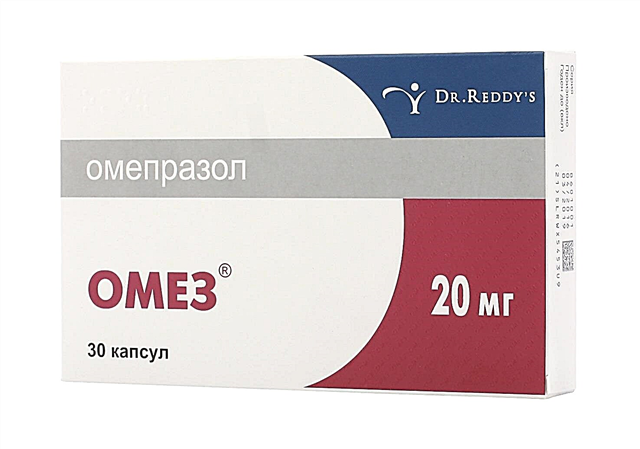
When a woman finds out about an imminent replenishment, she is often interested in changes in her diet so that the baby receives as many benefits as possible. The first thought is often to add more fruits to the menu, because they are rich in vitamins and, undoubtedly, should have a positive effect on the health of the expectant mother and the development of the baby. However, not all fruits can be eaten without restrictions during pregnancy, especially if they are exotic. This also applies to such a popular product as bananas.

Are they allowed during pregnancy?
According to doctors, it is advisable for women in a position to avoid foods that are unusual for their climate. This will reduce the risk of indigestion in the expectant mother and allergic diseases in the child. And therefore, the question of whether it is possible to eat such sweet fruits as bananas interests many pregnant women. Doctors answer in the affirmative, because, despite their exotic origin, bananas have long become a familiar delicacy for us. In most cases, such fruits have a positive effect on the condition of the female body and on the growth of the baby in the womb. In the early stages, they will act as a source of an extremely important vitamin substance involved in the formation of the fetal nervous system.
We are talking about folic acid, which is recommended for women not only in the 1st trimester, but also before conception. It is not only responsible for the correct embryogenesis and formation of the placenta, but also prevents the development of anemia. In addition, eating bananas at the beginning of pregnancy will help to survive toxicosis and support immunity. In the second trimester, bananas are no less valuable, since they have a positive effect on the formation of the baby's skeleton and contribute to better blood flow in the placenta.
In the later stages, doctors recommend using bananas if heartburn is worried, because such fruits have the ability to envelop the walls of the stomach. If a woman eats them in the third trimester, this will also help avoid problems with bowel movements and hemorrhoids.

Benefit
Bananas are sweet and flavorful fruits. They are hearty, tasty and reasonably priced, which is why they are often included in the daily menu. One of the most valuable elements of these fruits is potassium. It is good for the cardiovascular system and helps to avoid leg cramps and edema, which often bother expectant mothers towards the end of pregnancy. Adequate intake of potassium helps to eliminate excess fluid and normalize blood pressure.
In addition to potassium, bananas contain the following elements:
- quite a lot of vitamin B6, which is involved in metabolic processes and helps fetal hematopoiesis;
- a large amount of vitamin C, due to which the use of bananas has a positive effect on the condition of the skin, strengthens the immune system and blood vessels, prevents varicose veins and stretch marks;
- a lot of magnesium, a sufficient level of which protects a pregnant woman from miscarriage and soothes the nerves;
- a significant amount of fiber and pectin, which allows you to normalize stool when eating bananas;
- a lot of zinc, which contributes to the proper development of embryonic cells and prevents placental exfoliation.

Harm
While there are many positives, bananas can be harmful in some situations. First of all, expectant mothers need to remember about their relatively high calorie content in relation to other fruits. If a woman is gaining weight very quickly or she is diagnosed with diabetes, then it is advisable for her to limit bananas. But even those expectant mothers whose weight and blood glucose are normal should not abuse bananas. The optimal amount of such fruits is considered to be 1-2 pieces per day.
Eating unripe fruit can negatively affect digestion by causing gas to build up in the intestines. It is especially harmful for women with intestinal diseases to eat greenish fruits. Stale bananas, which are overripe and began to rot, are also dangerous, especially if their skin is damaged. Such fruits can cause poisoning. Due to the ability of bananas to remove excess fluid from the body, the fruit consumed in large quantities can provoke blood thickening, so it should also be limited if there is a tendency to thrombosis and increased coagulability.
As for allergies, it is extremely rare for bananas, but it still occurs in some women. Typically, these patients also have a negative reaction to avocados and tomatoes.

I constantly want
The increased craving for such fruits, which occurs in some women in the position, is most likely associated with a lack of potassium. This element is contained in an average fetus in an amount of about 500 mg, but this dose is not enough for pregnant women. If the female body suffers from a deficiency of this substance, then the expectant mother will have a strong desire to constantly eat bananas. In order not to exceed the recommended daily allowance, other foods that are a source of potassium, such as dried fruits, legumes, pistachios and seaweed, should be included in the menu.
How to use?
A ripe banana is delicious raw and goes well with many other fruits. It is convenient to use it as a snack outside the home, because it does not require any preliminary processing. If you hold a banana by the skin, you don't have to worry about the product not being washed. In addition, it can be used for other purposes.
- Include healthy smoothies and cocktails in recipes. The easiest option is to beat the sweet pulp with milk, adding berries, ice cream or honey to taste. In summer, you can make a banana and strawberry cocktail, in winter, a banana and kiwi smoothie. Such drinks can replace one of the meals.
- Oven dry for delicious banana chips. There is no need to season the thinly sliced slices. The finished product is used as a substitute for sweets and other sweets, which should be limited to pregnant women.
- Use in recipes for muffins, pies and other baked goods. In such dishes, bananas can replace some of the sugar, additionally giving them a pleasant aroma. By mixing banana puree with soft curd, you get a delicious filling for pancakes.
Cough use
Since most of the medicines prescribed by doctors for coughs are undesirable during pregnancy, a banana can help out with sore throat, sore throat, and bronchitis. In folk recipes it is recommended to peel such fruit, and then mash with a fork or chop in a blender. Next, banana puree should be pour a glass of warm milk, bring to a boil and remove the heat, then leave for about 20 minutes.
If the expectant mother is not allergic to honey, this beekeeping product is added to a slightly cooled banana milk drink. Drink the prepared product during the day and at night, 2 tablespoons.
If a woman does not tolerate milk, it is permissible to replace it with just boiling water. In case of an allergic reaction to honey, chopped figs are included in the recipe instead.

Purchase and storage
Ripe banana has a bright uniform yellow color and a pleasant smell. If the purchased fruits are not yet ripe (they are light yellow or greenish, and the aroma is not expressed), they can be left for several days in a dark, cool place. If brown spots appear on the skin, the bananas are overripe. They are not harmful, but should be eaten right away. It is not recommended to store such fruits "with specks".
Don't go for the biggest bananas. Experts say that they are less tasty, as they represent feed varieties. Medium sized fruits are the best choice. Store them at home separately from other fruits or berries. The optimum temperature to keep yellow fruits fresh longer is the range of + 13– + 17 degrees.
Peeled banana should be eaten immediately. If you put it in an airtight container and put it in the refrigerator, then the pulp can be stored for up to 6 hours.


For dangerous foods during pregnancy, see the following video.



